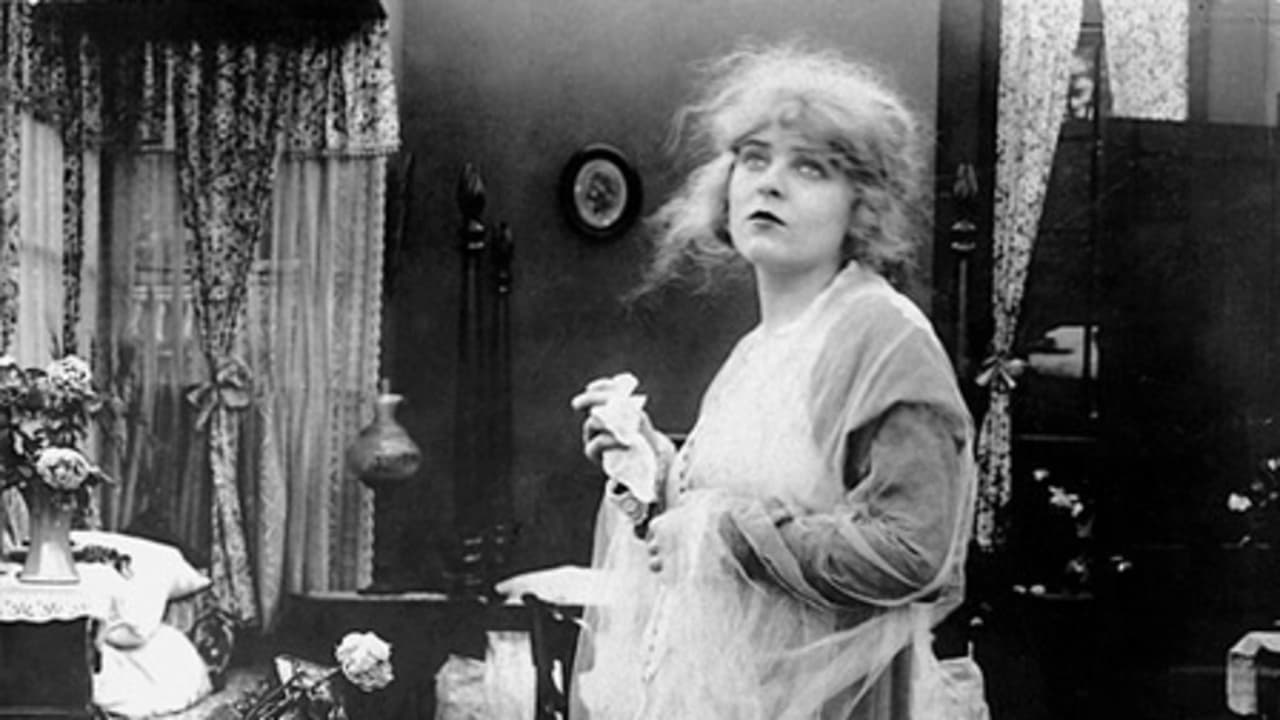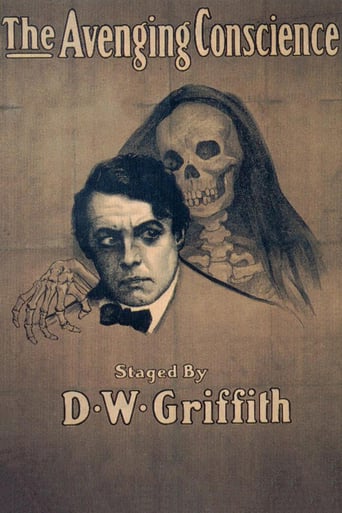

Just watched this interesting suspenseful D. W. Grifith film that he made before his epic The Birth of a Nation on YouTube. In this one, Henry B. Walthall plays the grown nephew of his only living relative who disapproves of his relationship with common girl Blanche Sweet (who like me was born in Chicago, Illinois). So this nephew resolves to kill him which results in his search by police. Turns out, however, it was all a dream...There's other stuff that happens here but I'll just say that with the nearly hour running time, this was a very interesting movie to watch from the silent era with some of the then experimental shots that happen here. So while The Avenging Conscience was primitive by today's standards, it's still worth a look.
... View MoreAvenging Conscience; Thou Shalt Not Kill, The (1914) *** (out of 4)Feature from D.W. Griffith, which he quickly shot before he started filming on The Birth of a Nation. An uncle is constantly putting presure on his nephew (Henry B. Walthall) to spend more time on his work. When the nephew falls in love with a local girl (Blanche Sweet) the uncle demands that they call it off. When the nephew can't think of anything else, he decides the only way to keep the girl is by killing the uncle. This film is based on several Edgar Allan Poe stories with the second half of the film dealing mainly with The Tell-Tale Heart. You can tell this film was quickly made but there's still some nice direction, good performances and G.W. Bitzer's wonderful cinematography. There's some nice scenes dealing with devils and ghouls from Hell as well as a scene of Jesus. The special effects are quite nice for the era as well. Mae Marsh and Ralph Lewis have small parts. Due to the lack of copyright laws at the time, Griffith used all these short Poe stories without any credit being given.
... View MoreThe ending is a bit far-fetched, but this is a wonderful adaptation of Poe - not just "The Tell-Tale Heart", but other writings as well. Henry B. Walthall is perfect as the obedient, loving, and dominated nephew to his kind but overbearing uncle (Spottiswoode Aiken). There is surprising violence for a film made in 1914, and several twists and turns to the plot. Griffith does a remarkable job of showing the love between the nephew and his girlfriend, Annabelle, and the agony they experience when the uncle expects them to end their relationship, as well as the heartrending stress experienced by the nephew, who wants desperately to please his uncle, who is his only living relative. Well worth watching.
... View MoreThe opening scene sets the mood for this eerie and curious Griffith film; a family is in mourning, where the uncle (played by Spottiswoode Aitken) turns towards his infant nephew. Once the boy is a man (played by Henry Walthall), his uncle is still guiding him through life. The conflict begins when the nephew has a love interest (played by Blanche Sweet), which the uncle feels is incompatible with the plan he has set for his nephew.Loosely based on Edgar Allan Poe's "The Tell-Tale Heart", with appropriate takings from Poe's poem "Annabel Lee" to help move the plot, this is the most extrinsic of Griffith's films--neither an epic, nor a quaint romance, for which he is renowned. In most ways, it's more similar to later psychological or expressionist films from Scandinavia and Germany. The slow pacing and use of irises and other methods add to the pang of this psychoanalytic horror. The restrained performances are even more vital, especially Walthall's forceful performance, again displaying his versatility--rarely has a nervous, psychotic breakdown been done better.It's impressive that Griffith succeeded as much as he did in such a foreign genre, especially in his imperfect period before "The Birth of a Nation"; therefore, the flaws are surprisingly few and excusable. Again, Griffith inserts a supplementary romance, or "The Contrast", as he called it; in this movie, it is particularly misplaced, unnecessary and feckless. Perhaps its removal would have allowed for needed development of the uncle. I wonder why he was so frantic and selfish in his vicariousness. Finally, the ending is of what would be one of the more contemptible of such conventions. Griffith slightly recovers, however, with the most queer scene in the film--the Pan fantasy, in a way, reasserts Walthall's character's insanity.
... View More